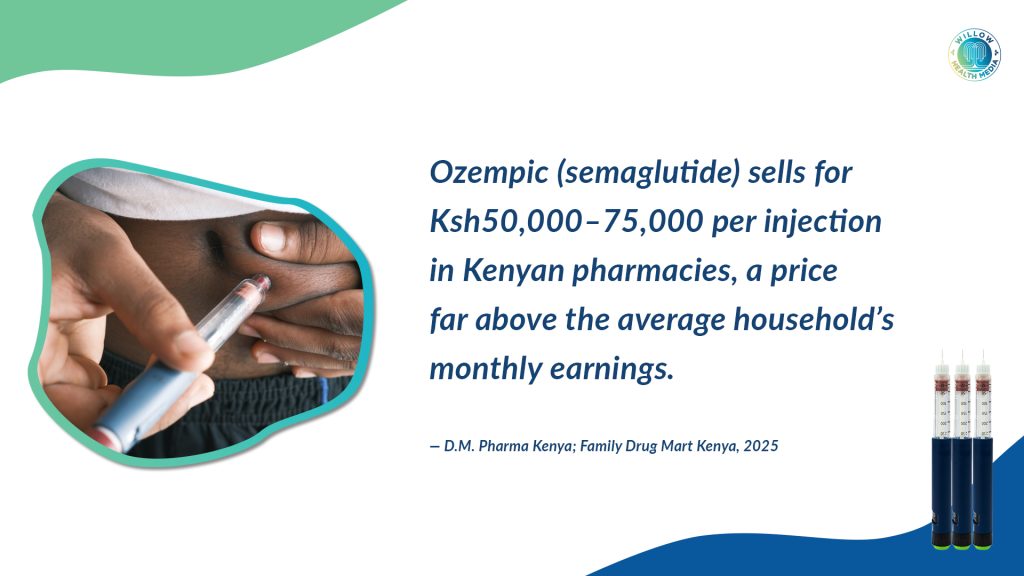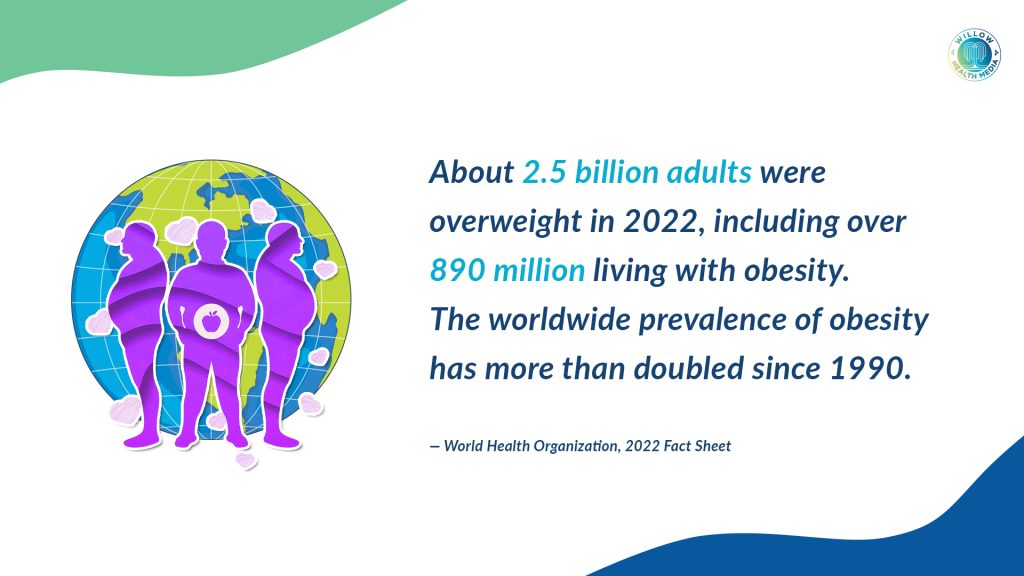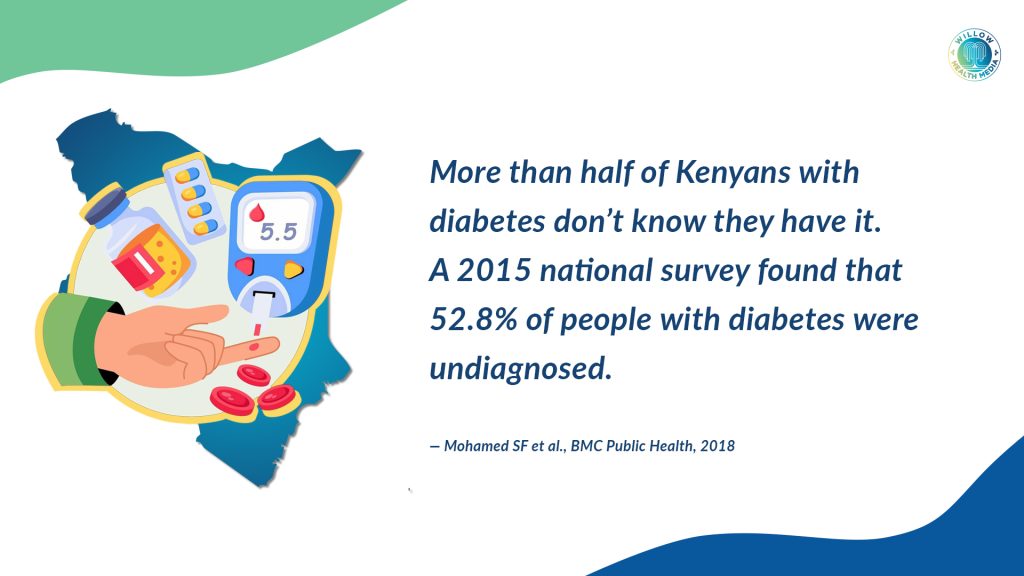One shot of the injection costs Ksh50,000, putting it out of reach for the very populations most burdened by diabetes and obesity.
The World Health Organization (WHO) has officially added semaglutide – the active ingredient in the popular drugs Ozempic and Wegovy – to its Model List of Essential Medicines.
The move is expected to make one of the most revolutionary diabetes and obesity treatments more affordable and accessible globally, particularly in low- and middle-income countries where the burden of these chronic diseases is growing rapidly.
The WHO’s Model List of Essential Medicines identifies drugs considered critical for addressing the world’s most pressing health needs. Inclusion on the list often drives countries to prioritise procurement, encourages the development of lower-cost generics, and can ultimately help bring down prices.
WHO’s announcement comes just weeks after the Pharmacy and Poisons Board (PPB) issued a stark warning about the rising misuse of semaglutide, commonly known as Ozempic, in Kenya.
In an August 19 press release, the regulator cautioned healthcare providers and the public about the inappropriate marketing and off-label use of semaglutide-containing products, including Ozempic and its generics. The Board highlighted how social media has fuelled demand for the drug, with many individuals seeking it purely for cosmetic weight loss, bypassing medical consultation altogether.
“The Board hereby draws the attention of healthcare providers to the off-label and irrational use of Semaglutide,” the statement read. “Please note that Semaglutide is a prescription-only medicine.”

This drug should be prescribed under strict medical supervision, not sold over the counter
Dr Olive Akunga, a consultant physician specialising in Endocrinology, calls the local situation “worrisome,” warning that prescription-only medications are now being sold by non-medical personnel via informal channels. “We are seeing a drug that should only be prescribed under strict medical supervision being sold like an over-the-counter supplement,” she said. “That is dangerous and could endanger lives.”
Ozempic is the brand name for semaglutide, a once-weekly injectable GLP-1 receptor agonist approved to manage type 2 diabetes. Clinical trials initially focused on its ability to improve glycemic control in adults whose diabetes was not adequately managed by first-line drugs such as metformin.
“Therefore, Ozempic as a brand received FDA approval for managing type 2 diabetes,” explained Dr Akunga.
However, during its use, researchers noticed an unexpected but significant side effect- weight loss. This led the drug’s manufacturer to conduct fresh clinical studies to prove semaglutide’s safety and efficacy for weight management in people without diabetes.
“Because it was originally only licensed for type 2 diabetes, the manufacturer had to conduct new clinical studies using the same molecule in order to seek approval for weight loss as a separate indication,” said Dr Akunga. “This is why we now have Wegovy – essentially semaglutide but approved specifically for obesity.”

Rare but serious risks include pancreatitis, gallbladder problems, kidney complications
Despite its effectiveness, semaglutide is not without risks. When prescribed appropriately, it is generally well tolerated, but common side effects include nausea, vomiting, diarrhoea, constipation, abdominal pain, and loss of appetite.
Rare but more serious risks include pancreatitis, gallbladder problems, kidney complications, and thyroid tumours. Semaglutide can also cause hypoglycemia, especially when used with other glucose-lowering medications, and severe allergic reactions are possible.
“With any medication, not just semaglutide, you must evaluate the risk versus the benefit to the patient,” Dr Akunga emphasised. “That’s a fundamental principle in medicine.”
She warned that sensationalised warnings or blanket statements against semaglutide could do more harm than good. “Obesity is a killer, just like diabetes and hypertension,” she said. “If we stigmatise or restrict access to effective treatments, we risk worsening outcomes for patients who genuinely need them.”
While the science behind semaglutide is promising, the cost remains prohibitive for many patients. In Kenya, one shot of the injection costs a whopping Ksh50,000, putting it out of reach for the very populations most burdened by diabetes and obesity.

If a patient meets the clinical definition of obesity, we can prescribe it for weight loss
The WHO’s move to list semaglutide as an essential medicine is expected to put pressure on pharmaceutical companies to lower prices, speed up the introduction of generic versions, and integrate the drug into public health systems.
“The thing is with generics, they are not necessarily required to do robust studies like if you are the originator,” said Dr Akunga. “So, you find that a lot of those used in the context of medicine, your physician advises you, because we prescribe the molecule, we are not loyal to any brand.”
As the PPB ramps up surveillance to curb misuse, experts say Kenya’s health system must also prepare to meet growing legitimate demand for semaglutide – particularly if lower-cost versions become available.
“If a patient meets the clinical definition of obesity, we can prescribe semaglutide for weight loss -medically and ethically,” said Dr Akunga. “But it must be done under supervision, with clear guidance, and as part of a holistic plan that includes diet and lifestyle changes.”
The WHO’s endorsement could mark a turning point in global diabetes and obesity management. The challenge now lies in making sure the drug is used safely, ethically, and equitably.





















